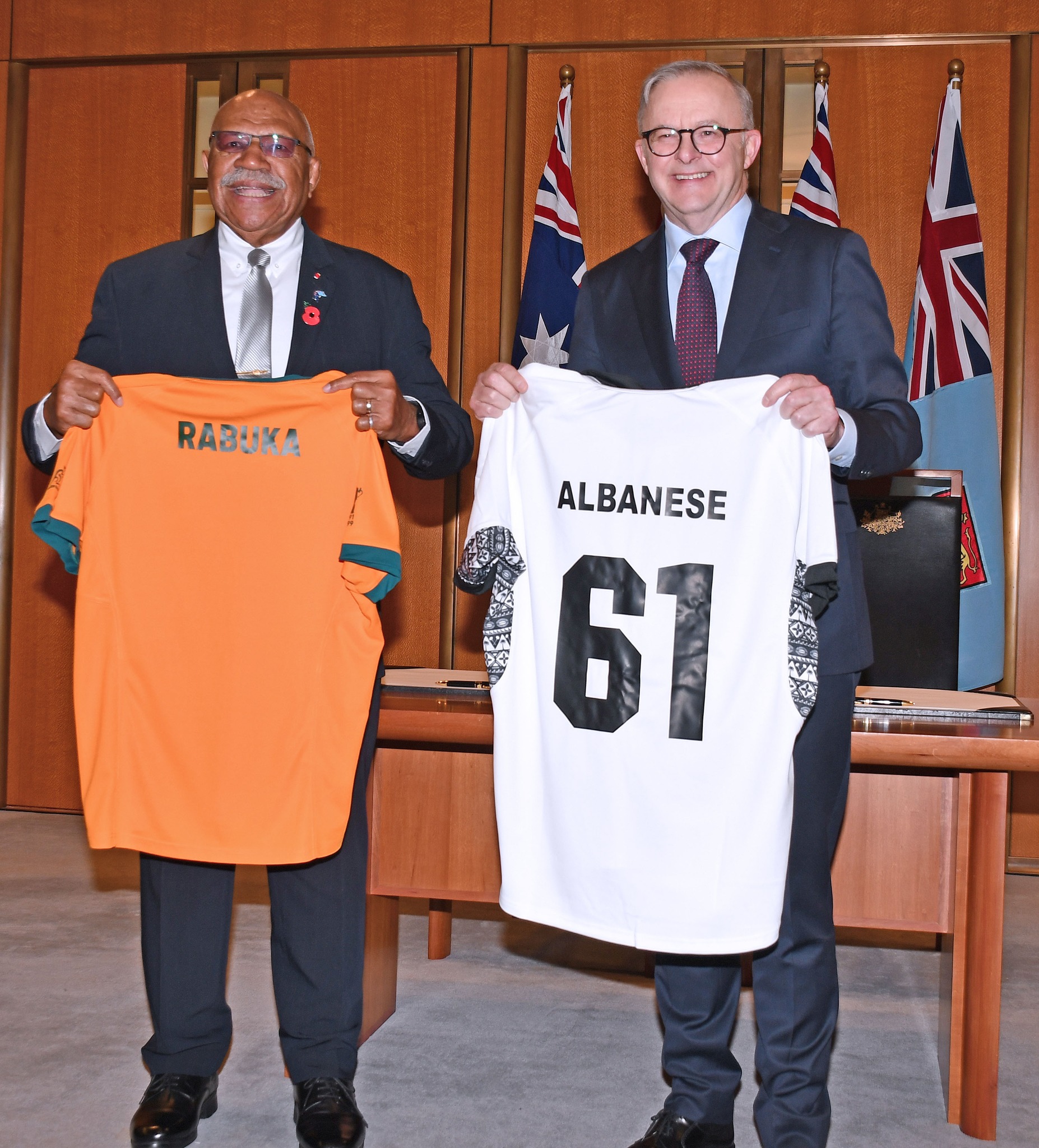Fiji’s Prime Minister, Sitiveni Rabuka, has signalled a more “realistic” tone from the Pacific over Australian coal mining and gas production, saying fossil fuel industries and exports cannot be shut down immediately despite the impact on climate change.
Following talks with Prime Minister Anthony Albanese in Canberra on Wednesday, Rabuka recognised the importance of fossil fuel income, taxes and royalties to the Australian economy, and by extension the federal government’s ability to assist poorer nations.
“We are realistic about our demands as they slow down on some of the things that are making them [Australia] tick at this time, that have contributed to the progress this far, and we have benefited from those, through aid and assistance and grants in the past,” Rabuka said.
“We do not want them to stop doing what they are doing. We want them to tone down – the word is ‘sustainable’. It has to be sustainable. You don’t just stop everything.
“For us in the Pacific, we will have to contribute, to counter what has not been able to be achieved quickly here. We in the Pacific can contribute through assistance for our mitigation and other programs that we carry out and contribute towards … lessen[ing] the effects of climate change.”
Rabuka’s comments come ahead of next month’s Pacific Islands Forum leaders meeting in the Cook Islands that he and Albanese will attend.
Australia’s economic reliance on fossil fuels – Australia is among the world’s biggest exporters of coal and gas – has been a big point of friction with Pacific nations in efforts to combat climate change, including calls from PIF leaders for a ban on new coal and gas projects.
Rabuka told a Lowy Institute event on Tuesday night that the “climate crisis poses a real threat to our existence”.
“We stress often that we of the [Pacific] islands did not create the conditions causing the environmental disruption and destruction. But we are left carrying the brunt of its impact,” he said.
While not backing an immediate end to fossil fuel mining, the Albanese government has sought to reassure Pacific leaders of its commitment to climate action by emphasising its renewable energy and emissions reduction goals, including a target of generating 82 per cent electricity from renewable energy by 2030.
Following their meeting, the prime ministers announced an upgrade in ties between Fiji and Australia.
This includes a memorandum of understanding on cybersecurity co-operation, with Pacific nations not immune from cyberattacks, including those launched by China-backed hackers.
Rabuka, who earlier this year put on hold a security agreement with China, said he wanted a policy of “friends to all, enemies to none”, but acknowledged it was more comfortable gravitating towards the West than to Beijing, amid a fierce contest for regional influence.
“Some people call it rivalry, some people call it one-upmanship, whatever it is,” he said.
“We’re more comfortable dealing with traditional friends that have similar systems of government, that our democracies are the same brand of democracy, coming out of the Westminster system of parliament, and also based on British law that we inherited,” said Rabuka.
SOURCE: AFR/PACNEWS













